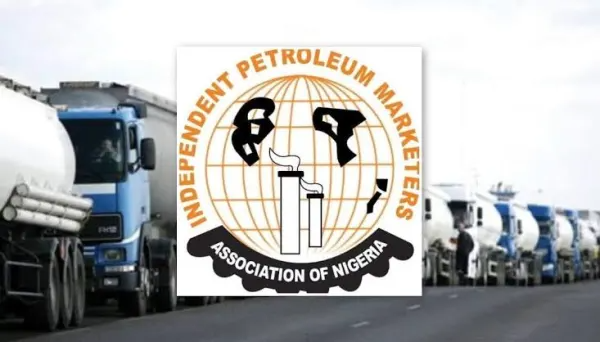Since the enforcement of Third Party Motor Insurance policy by the Nigeria Police Force took effect from February 1, 2025, there have been various activities on the side of insurance operators around the exercise to boost market shares. CHRIS EBONG reports.
Barely three weeks into the enforcement of the Third Party Motor Insurance compliance by the Nigerian Police Force (NPF) in collaboration with the National Insurance Commission (NAICOM) to ensure public compliance, insurance operators latching on the momentum gathered by the exercise to jostle for market share.
The envisaged boom is, so far, attracting the insurance operators to cash in on the opportunity to revive their various brands in the marketplace without critically enumerating their offerings as service providers.
At N15,000 compulsory insurance, companies see a goldmine in the general business portfolio to sell their offerings to the motorists who are now afraid of police harassment rushing to get their policies renewed or fixed.
Those who’s insurance have expired and those who are not sure of the genuineness of the document are now congregating at insurance outlets to make good the document to avoid police harassment.
Reports from cities across the country indicates that the Police, at stop and search points, have been apprehending motorists without genuine insurance documents though emphasising on the Third Party Motor Insurance and ignoring other motor insurance policies such as valid comprehensive insurance.
Third Party Motor Insurance is one of the 16 compulsory insurance products according to Section 68 of the Insurance Act of 2003 and the Third-Party Motor Insurance Act of 1950.
According to World Bank, “Motor Third Party Liability Insurance (MTPL) ensures that damage to third party health and property caused by an accident for which driver and/or owner of the car were responsible is covered. A policy may be taken out by the owner of a vehicle or by a lawful possessor authorized by the owner on behalf of the owner.”
Compulsory MTPL Insurance is a financial protection system built to prevent any grievance that third parties could face, due to lack of solvency of first party who caused bodily injury or property damage following any event related to a car accident. Motor insurance is generally measured non-life insurers’ strongest class of business in terms of premium volume.
Responding to media inquiries in Lagos on Monday, February 3rd, 2025, Lawal Mijinyawa, Managing Director/CEO of KBL Insurance Limited emphasised the Company’s commitment to customer convenience and regulatory compliance, where he called on the general public to comply with the regulation, detailing the importance of Motor Insurance. He assured customers, saying: “At KBL Insurance Limited, we believe insurance is more than just policies. It is about protecting lives, securing assets, and ensuring peace of mind. Our goal is to simplify Third-Party Motor Insurance so that every vehicle owner in Nigeria remains compliant with the law while benefiting from seamless insurance coverage and top-tier customer support.”
The Third-Party Motor Insurance is mandatory for all vehicle owners, as it is now enforced by the Nigeria Police Force and the National Insurance Commission (NAICOM).
The policy provides financial protection by covering liabilities for damages or injuries caused to third parties in the event of accident. Despite its legal requirement, many motorists are unaware of the serious risks of driving without valid insurance.
A defaulter could pay a fine of N250,000, which may include impounding the vehicle along other strict sanctions.
Segun Bankole, the Chairman of the Corporate Affairs Committee of Nigerian Insurers Association (CAMCONIA), and Head of Corporate Communications and Investor Relations for Sovereign Trust Insurance Plc, lending his voice to the ongoing enforcement of the Third-Party Motor insurance policy which commenced on February 1, 2025 emphasises the imperative that some form of education is put out there for the benefit of the insuring public, the general public and officers of the Nigerian Police Force, NPF, who are saddled with the responsibility of enforcing the implementation of the Third-Party Motor insurance policy.
In his words: “there has been complaints from some members of the insuring public about the way and manner the enforcement is being carried out which needs to be addressed to avoid any form of misunderstanding between motorists and the law enforcement officers across the country’.
Quite a number of comprehensive motor policyholders from various insurance companies have been at the receiving end since the enforcement began. They argued that the law enforcement officers do not recognise their comprehensive motor insurance policy and insist that they should go and get the Third-party motor insurance cover as directed by the Inspector General of Police.”
Furtherance to this, Mr Bankole gives an insight on what Third-Party Motor Insurance offers policyholders describing Third Party Insurance as an indemnity against legal liabilities to third parties for death, injury and property damage while on the other hand, comprehensive motor insurance covers loss or damage from accidents, fire, theft, and third-parties’ liabilities and own damage.
Expressing optimism that the collaboration between the Nigerian Police Force and the National Insurance Commission (NAICOM), in ensuring that motorists across the country has at least a Third-party Motor Insurance policy is a very good and welcome development which should earn the trust of Nigerians, he advocated for more enlightenment on the enforcement and urged motorists to embrace the development and see it as a way forward to protecting the lives and properties of Nigerians when road crashes occur especially for the third parties.
Similarly, AXA Mansard Insurance Plc has urged vehicle owners and motorists across Nigeria to ensure they obtain only genuine Third-Party Motor Insurance policies as the nationwide enforcement of the policy by the Nigeria Police Force (NPF) takes effect.
The underwriter states that the initiative, which aligns with the provisions of Section 68 of the Insurance Act 2003 has been welcomed by National Insurance Commission (NAICOM) and the Nigerian Insurers Association (NIA) respectively, noting that it is a significant step towards strengthening compliance, ensuring road safety, and protecting motorists and third parties on Nigerian roads.
Speaking on the commencement of the enforcement, Adebola Surakat, Chief Marketing Officer, AXA Mansard Insurance Plc, said with defaulters facing fines of up to ₦250,000, the tendency of unscrupulous elements selling fake motor insurance policies to unsuspecting members of the public may be on the rise.
She advises the insuring public to secure all their insurance policies, including motor insurance from only registered companies and their accredited agents.
“As a brand committed to protecting our customers and the insuring public, we strongly advise motorists to be cautious and obtain their insurance policies only from licensed and trusted insurers.”
She expresses the fear that the rise in enforcement may lead to a surge in counterfeit policies, leaving motorists exposed to financial risks.
Tagged “Beyond Compliance: How Third-Party Motor Insurance Protects Everyone on the Road”, AIICO Insurance noted that uninsured vehicles on Nigerian roads pose significant risks, with countless road users facing financial and emotional distress each year due to accidents involving vehicles without valid insurance. Sometimes, people have to pay for medical bills, car repairs, or other losses after a car accident.
For the company, “if everyone involved had insurance, it would help cover these costs and reduce the financial burden. But that doesn’t always happen. The situation is worse when the person responsible for the accident does not have valid insurance to compensate the victims. This type of insurance is called third-party insurance.
In Nigeria, many cars, especially commercial vehicles, do not have valid insurance. This leaves accident victims with no financial support. They are often forced to bear the costs themselves because the responsible driver cannot pay for the damage.”
The states that with the rising cost of living, the financial impact of road accidents can be devastating, emphasizing the critical need for motorists to comply with insurance regulations and protect themselves and others on the road.
Mrs Bola Odukale said: “The third party awareness is going to be sustained for the long haul because this is not about third party but about insurance.
“We are bringing insurance awareness closer to the people, even though we are focusing on third party. It is still talking about insurance, letting people know that there is something called insurance. So it is not a conversation that we are just going to end in February, it is something we intend to push further and further.
“Talking about this third party has shown that a lot of awareness creation is required. So we will work with you over the long haul, so that we sustain the tempo.”
She, however, appealed to insurance journalists to collaborate with the industry to project the sector in a positive light and protect the industry.
“A lot of us have prospered from this industry, so it behooves on us to protect the industry in terms of our reporting. When we are doing our balanced reporting, we should ask ourselves, ‘what is the end result? So that at the end of the day if anybody reads anything about the industry, how does it settle in the persons mind. Does it make the person have a better perspective of this industry?”
In a circular dated 31st January, 2025 and signed by ACP Olumuyiwa Adejobi, Force Public Relations Officer, Force Headquarters, Abuja tagged; IGP Directs Due Enforcement Nationwide reads: “In line with the directive of the Inspector-General of Police, IGP Kayode Adeolu Egbetokun, Ph.D., NPM., the Nigeria Police Force once again reiterates the enforcement of the Mandatory Third Party Insurance which will commence on February 1st, 2025.
This initiative aims to reinforce road safety measures and ensure that all vehicle owners comply with the stipulated insurance requirements to protect themselves and others on the road.”




 4 days ago
38
4 days ago
38








 English (US) ·
English (US) ·